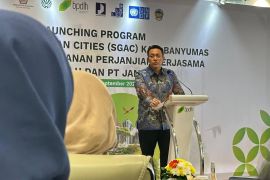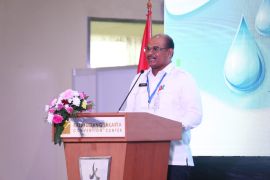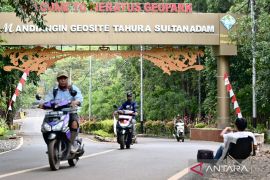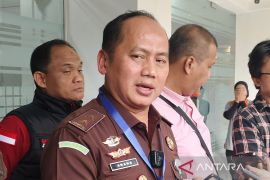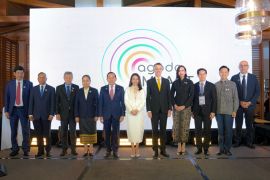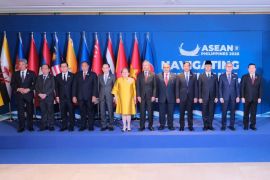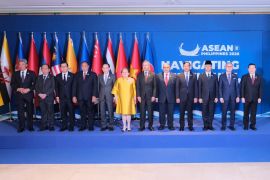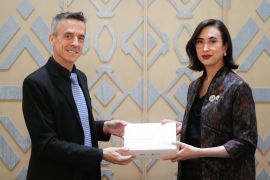What is needed at the regional level would be support for project preparation, project financing, as well as ways to put in place the appropriate infrastructure for the cities concerned and better engagement with the community.
Other challenges include emerging issues, such as cyber security and privacy concerns.
Director of the ASEAN Connectivity Division under the Office of the Secretary-General at the ASEAN Secretariat Lim Chze Cheen presented on the progress of the ASEAN Smart Cities Network and implementation of the ASEAN Sustainable Urbanisation Strategy.
In developing smart and sustainable urbanization strategy in ASEAN cities, Chze Cheen noted, ASEAN has identified eight mega trends that would affect urbanization in ASEAN, including rising urbanization, especially in middleweight cities; greater dependence on local governments for delivery of public services; and emergence of digital technologies to transform cities.
Six other identified trends are inequality and non-inclusive growth that have been exacerbated by the COVID-19 pandemic; urban sprawl raising concerns over congestion, economic efficiency, and cultural heritage; increasing resource footprint of cities; new priorities surrounding crime and the rule of law, e.g. cybersecurity; and emergence of communicable and non-communicable diseases.
In the wake of these trends, technology, digital solutions, as well as innovative non-technological means could be utilized to address such issues and enhance the quality of life of the people of ASEAN.
To this end, he affirmed that ASEAN Member States (AMS) have established an ASEAN Smart Cities Network (ASCN) serving as a collaborative platform where cities work together to improve the lives of ASEAN people, promote new business opportunities, as well as engage in the development of innovative and smart cities.
Its framework serves as a non-binding guide to facilitate smart city development in each ASCN city in a manner that is specific to the city’s needs and potentials as well as its local and cultural contexts. The ASCN framework articulates the key features of ASEAN smart cities, i.e., urban systems, development focus areas, and enablers. The framework also seeks to complement existing national development plans or help build new ones.
Focusing on the implementation framework, 26 ASEAN pilot cities have been nominated by the AMS, and each city has developed a smart city action plan that contains the city’s vision for smart city development, chosen focus areas, strategic targets, and priority projects.
The ASCN Smart City Action Plans (ASCN SCAPs) also include contact details of each city’s chief smart city office enabling potential partners to reach out to them directly.
The ASCN SCAPs is also considered as a living document, and the ASCN would monitor the progress of this implementation annually.
Noting the stage of progress of the ASCN, as of August 2021, ASCN has established 65 projects, under ASCN Smart City Action Plans across six focus areas, where over 80 percent of the projects are in the focus areas of Built Infrastructure, Quality Environment, Civic & Social.
Since its establishment in 2018, the number of ASCN SCAP Projects has increased, from 53 in 2018 to 65 in 2021.
While the number of ASCN initial project partnerships between ASEAN cities and external partners has also increased, from 32 to 48 in the corresponding period, the ASCN Terms of Reference (TOR) were also adopted, aiming at strengthening the institutional mechanism, assisting in monitoring the progress of SCAP, facilitating partnerships, and preparing the network for future membership expansion, he stated.
This year, the ASCN has also endorsed the concept note on Development of an ASEAN Online Portal and concept note on Development of ASEAN Smart and Sustainable City Investment Toolkit that would be implemented over the next one to two years.
Complementing the efforts of ASCN, Chze Cheen noted, the ASEAN Sustainable Urbanization Strategy (ASUS), which consists of the strategy with toolkits to support local governments in the ASEAN to advance sustainable urbanization in their respective cities as well as to provide a foundation of knowledge to help ASEAN cities across the network to achieve sustainable urbanization, was established.
The ASUS shares the same six focus areas as the ASEAN Smart Cities framework, demonstrating possible synergies and complementary efforts. The ASUS identified seven priority areas and eight corresponding priority actions, taking into account the potential of value addition to the activities of cities and alignment with partners’ priorities.
Since the launch of ASUS in 2018, the ASEAN has reached out to cities and received expressions of interest from 30 cities across ASEAN to cooperate under ASUS.
With support from GIZ and AlphaBeta, the ASEAN had supported eight cities in the development of action concepts. With support from the ASEAN-Australian Development Cooperation Program Phase II (AADCPII) and UN-Habitat, ASEAN is currently supporting eight other cities to develop technical proposals, Chze Cheen remarked.
Japan's initiatives
Deputy Director-General for International Projects Promotion, Trade and Economic Cooperation Bureau, Ministry of Economy, Trade and Industry (METI), Hiratsuka Nobuyuki, introduced Japan’s initiatives.
Referring to the 44th Meeting on Strategy relating to Infrastructure Export and Economic Cooperation held on October 7, 2019, policies for the overseas development on smart city were discussed and a decision was taken to strengthen the national ability to respond to cross-sectoral issues by building a platform for public-private partnership, intensify Japan’s relations with partner countries from project conception, mutually complement strengths through collaboration with developed countries and international organization, study and analyze the feasibility of individual projects to ensure project practicality, and spread the Data Free Flow with Trust (DFFT) concept agreed upon at the G20 Osaka Summit in 2019.
To continuously achieve and support smart city development in the ASEAN region, the government of Japan has also actively participated in the 3rd ASEAN-Japan Smart Cities Network High-Level Meeting held on October 18-19, 2021, noting the importance of forming a diverse smart city that fulfills the needs and takes into account the actual conditions of each city, a smart city that is based on diverse participants, and a smart city that is open and highly transparent.
An example of a smart city that is based on diverse participants is also seen in Shibuya City in Tokyo that was founded as an industry-government-academia regional collaboration organization. Its organization promotes efforts for solving regional issues that the city government is facing by mobilizing ideas and talents of diversified people who gather in.
In addition, the overview of the Japan Association for Smart Cities in ASEAN (JASCA) was presented by playing its central role in supporting the smart cities in ASEAN.
Its main mission is to strengthen the cooperative relations between ASEAN and Japan, as JASCA is composed of seven government ministries and agencies, 11 cities, 16 government-affiliated bodies, and 266 major private enterprises in Japan.
Leveraging experiences and cutting-edge technology of Japanese public and private sectors, JASCA functions as a project incubator, a communication hub, and a total solution coordinator for smart city development in the ASEAN.
To take the ASEAN-Japan partnership to the next level, Japan further launched a cooperative measure, so-called the Smart City, supported by Japan ASEAN Mutual Partnership (Smart JAMP) last year.
This initiative mainly comprises four pillars; (i) implementation of concrete smart city project formation targeting 10 countries and 26 cities in ASCN, especially 20 projects that have been selected as the Smart City Project Formulation Study in the ASEAN region by the Ministry of Land, Infrastructure, Transport and Tourism (MLIT), Japan; (ii) promotion of financial support for ASEAN smart city proposals (i.e. totaling 250 billion Yen to promote smart cities in ASEAN); (iii) strengthening support for smart city in ASEAN developed by Japanese enterprises in ASEAN cities; and (iv) establishing the JASCA website to disseminate information on best practices in Japan and promote information-sharing with ASEAN countries.
Certain examples of the Japanese government’s support measures on feasibility studies (FS) and demonstrations were introduced, including by METI, to promote Japanese enterprises’ engagement from an early stage.
Such FS programmes cover smart city focusing on digital technology, data utilization, demonstration programme targeted at the smart city projects contributing to achievement in energy security, economic efficiency, environmental friendliness, and safety.
Noting the demonstration programmes as part of the Asia Energy Transition Initiative (AETI), they target to support the simultaneous achievement of sustainable economic growth and carbon neutrality in Asia.
In terms of finance, he drew attention to another support scheme by the government of Japan through NEXI, which is an export credit agency.
When technology, city governance, and a community of people come together to improve the quality of life for everyone, partnership is the key in delivering smart and sustainable urbanization.
Forging partnership with ASEAN partners, such as Japan, would be important to support more cities in developing action plans and high-quality project proposals.
Strategies to drive implementation would involve developing more capacity-building activities in planning, financing, and managing smart and sustainable city projects.
Related news: Adelaide welcomes smart city collaboration with Indonesia
Related news: Indonesia evinces interest in Korea's smart city development concept
Editor: Rahmad Nasution
Copyright © ANTARA 2021

